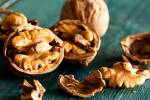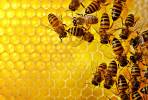Buying organic produce matter of choice
Damon McCune, a registered dietitian and coordinator of the UNLV Nutrition Center, knows a thing or two about the ins and outs of healthful eating. So does he buy organic foods?
“I don’t,” McCune said.
“There’s not enough of an immediate danger” from artificial pesticides and herbicides used on conventionally produced food, he said. “That seems to be the theme with this. There’s a mountain of data to show that the level of residue on anything is not harmful.”
What matters to McCune is nutrients. And, he said, research has shown no significant difference in nutritional value between organic and nonorganic foods.
“I can get the same nutrients, and it’s cheaper,” when buying conventional products, he said. According to a recent ShopSmart report by Consumer Reports, organic produce costs an average of 49 percent more.
McCune said that in his practice, he comes in contact with a lot of people who are fixated on the “Dirty Dozen” and “Clean 15” lists circulating on the Internet. Compiled by the nonprofit Environmental Working Group, reportedly from pesticide tests by the U.S. Department of Agriculture and the Food and Drug Administration, the lists offer advice on which types of produce might prompt a shopper to buy organic versions.
“There’s a bit of merit to this,” McCune said, “but the Clean 15 and Dirty Dozen is not a peer-reviewed source.”
Plus, he said, he doesn’t see the danger.
“With any of these products,” he said, “if you simply wash them, you’ll get rid of the residue.”
Consumer Reports advises washing both conventionally grown and organic produce. It says to use just water, avoiding soap or commercial vegetable washes, because research has shown that water is just as effective. Rub the produce under running water for 30 seconds to a minute, the magazine advises, simply using your hands in the case of produce with soft skins, such as peaches. For harder-skinned produce such as carrots or potatoes the group advises using a brush, and reminds that even if you won’t be consuming the rind — such as in the case with melons or pineapples — the food should be thoroughly washed to avoid contamination when it’s cut.
Kerry Clasby, who runs farmers markets in Las Vegas and calls herself an intuitive forager who’s a proponent of organic and biodynamic gardening, concedes that McCune isn’t far wrong when he says most artificial pesticides and herbicides are washed away.
“He has a point,” Clasby said.
But she maintains that changes in farming practices have altered the way our bodies can process such substances.
“The reason that pesticides wreak havoc on us is that they create a toxin that the body has to break down — a free radical,” she said. “No matter how you slice it — if you eat sugar or a lot of carbs and it’s creating free radicals running rampant, your body has a limit to the amount of free radicals it can handle.
“If we were using pesticides in a judicious way, where we’re using it more in emergency situations, and instead inoculating the soils with probiotics and doing crop rotation and old-fashioned immune support of the plants, I would agree with him; our bodies deal with toxins all the time. But we’re getting inundated all the time with free-radical damage.”
The two agree on one thing, and that’s that if someone does prefer to buy organic, they should focus on foods that would seem to be more susceptible to contamination.
“If they’re really worried about it,” McCune said, “things like apples, peaches, grapes, potatoes and strawberries — things that don’t have a real thick skin, that are going to be exposed to insects.” In these cases, too, the skin is consumed. With foods like bananas, avocados and pineapple, we don’t consume the skin.
And if you are buying organic, it doesn’t matter if you get the foods at a big-box discount store or in a health-foods specialty store, because the labeling is regulated by the USDA and the same standards apply to all.
“If it’s an organic product, they’re supposed to be using nonsynthetic items, unless they’re OK’d,” McCune said. “But that doesn’t mean they can’t use nonsynthetic items that are pesticides or herbicides. Anything can be toxic, even if it’s natural.
“In simplest terms, organizations and farms have to be certified organic by demonstrating that they’re protecting natural resources, conserving biodiversity and using only approved substances.”
According to USDA standards, McCune said, something that’s labeled “100 percent organic” can’t have any nonorganic ingredients — pretty self-evident if we’re talking fruits and vegetables, but not so in a product like, say, pizza dough.
“Most of the time, you’re just going to find a ‘USDA organic’ label,” he said, “and that means 95 percent.”
Clasby advises going with organics, to play it safe.
“The whole thing is more about minimizing,” she said.
But it comes down to personal choice.
“It’s common sense and using your intuition,” she said.
“As with everything in life.”
Contact reporter Heidi Knapp Rinella at Hrinella@reviewjournal.com. Find more of her stories at bestoflasvegas.com and follow @HKRinella on Twitter.























